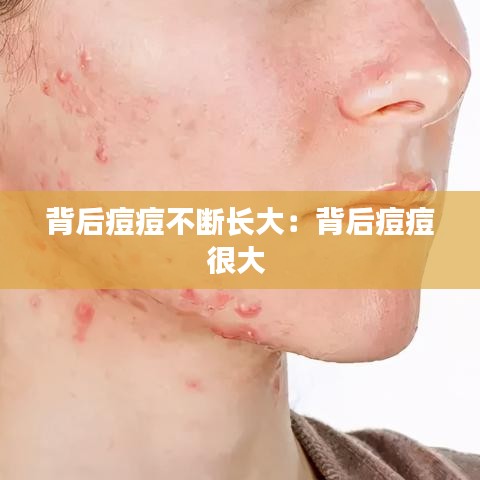<!DOCTYPE html>
Behind the Scenes: The Persistent Growth of AcneIntroduction to Persistent Acne
Acne, that unwelcome guest that often makes its appearance on our faces, can sometimes be a relentless adversary. For some, acne is a fleeting annoyance that comes and goes, but for others, it's a persistent problem that seems to grow and spread over time. In this article, we delve into the mysteries of acne that keeps growing behind the scenes, exploring the causes, treatments, and the emotional toll it can take on individuals.
Understanding Acne Growth
Acne is a skin condition that occurs when hair follicles become clogged with dead skin cells and oil. This can lead to the formation of blackheads, whiteheads, papules, pustules, nodules, and cysts. The growth of acne is influenced by a variety of factors, including hormonal changes, genetics, lifestyle, and skincare habits.
Hormonal Influences
One of the most common causes of acne is hormonal fluctuations. During adolescence, the production of androgens increases, leading to more oil production and the development of acne. For some individuals, hormonal changes can persist into adulthood, contributing to the persistent growth of acne.
Genetic Predisposition
Acne can also be inherited. If your parents or close relatives had severe acne, you may be more susceptible to it as well. Genetic factors can influence the skin's oil production, the strength of your hair follicles, and the way your immune system responds to acne-causing bacteria.
Lifestyle Choices
Our lifestyle choices play a significant role in the development and growth of acne. Poor diet, lack of sleep, excessive stress, and smoking can exacerbate acne symptoms. The consumption of certain foods, such as dairy products and high-glycemic index foods, has been linked to increased acne formation.
Skincare Habits
How we care for our skin can either help or hinder our battle against acne. Using harsh cleansers, picking at blemishes, and not following a proper skincare routine can lead to further inflammation and scarring. It's essential to use gentle, non-comedogenic products and avoid over-cleansing or stripping the skin of its natural oils.
Medical Treatments
When acne grows and becomes persistent, it may be time to seek medical intervention. Topical treatments such as retinoids, benzoyl peroxide, and salicylic acid can help control acne. Oral medications like antibiotics, oral contraceptives, and isotretinoin may also be prescribed by dermatologists.
Emotional and Social Impacts
The psychological impact of persistent acne cannot be overlooked. It can lead to low self-esteem, depression, and social anxiety. Acne can affect personal relationships, career opportunities, and overall quality of life.
Prevention and Management
Preventing and managing persistent acne requires a multifaceted approach. This includes a balanced diet, regular exercise, adequate sleep, stress management, and a consistent skincare routine. It's also important to consult with a dermatologist to develop a personalized treatment plan.
Conclusion
Persistent acne can be a challenging condition to manage, but it is not impossible. By understanding the underlying causes and taking a proactive approach to treatment and lifestyle, individuals can take control of their acne and improve their quality of life. Remember, seeking professional help and maintaining patience are key components in the ongoing battle against acne.
转载请注明来自洪湖市丰冠水利工程有限公司,本文标题:《背后痘痘不断长大:背后痘痘很大 》














 鄂ICP备2023001442号-1
鄂ICP备2023001442号-1
还没有评论,来说两句吧...